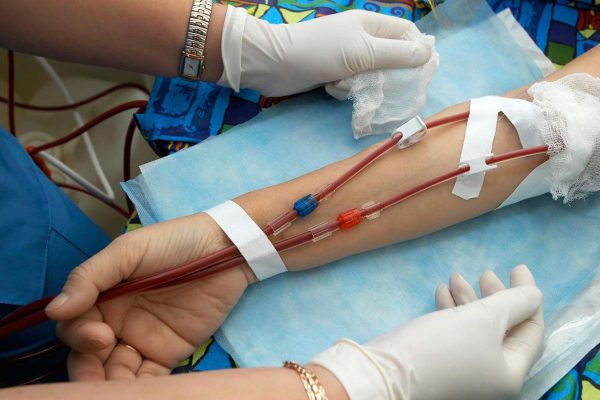The Department of Kidney includes specialists in kidney disease(nephrologists) as well as specialized and experienced paramedical personnel to treat patients with care and compassion and provide the ideal environment for patients to receive the most advanced, innovative diagnostic and treatment facilities in a coordinated fashion.

Services
Dialysis
Dialysis is a treatment that does some of the things done by healthy kidneys. It is needed when your own kidneys can no longer take care of your body’s needs.
When is dialysis needed?
You need dialysis when you develop end-stage kidney failure –usually by the time you lose about 85 to 90 percent of your kidney function and have a GFR of <15. Click here to learn more about the stages of Chronic Kidney Disease and GFR.

All Disorders of the Kidney
The kidneys are a pair of fist-sized organs located at the bottom of the rib cage. There is one kidney on each side of the spine.
Kidneys are essential to having a healthy body. They are mainly responsible for filtering waste products, excess water, and other impurities out of the blood. These toxins are stored in the bladder and then removed during urination. The kidneys also regulate pH, salt, and potassium levels in the body. They produce hormones that regulate blood pressure and control the production of red blood cells. The kidneys even activate a form of vitamin D that helps the body absorb calcium.
with you, by our side, we are fighting kidney disease on all fronts.
Surgery on Kidney Stone
Although most kidney stones pass on their own, your doctor may decide that surgery is the best treatment if you have stones lodged in the ureters, the tubes that carry urine from the kidneys to the bladder; large or particularly painful kidney stones; stones causing an obstruction of urine flow; or stones resulting in bleeding or infection.
At SIMS Hospital, our doctors also frequently treat people with more advanced kidney stone conditions, such as staghorn stones, which are large and can be caused by infection, and bilateral stones, which develop simultaneously in both kidneys or in the ureters.
Our surgeons perform hundreds of kidney stone surgeries each year, many of which involve minimally invasive techniques that do not require a hospital stay. In fact, traditional or “open” surgery, as it is commonly known, is now rarely performed at SIMS Hospital for the treatment of kidney stones.
